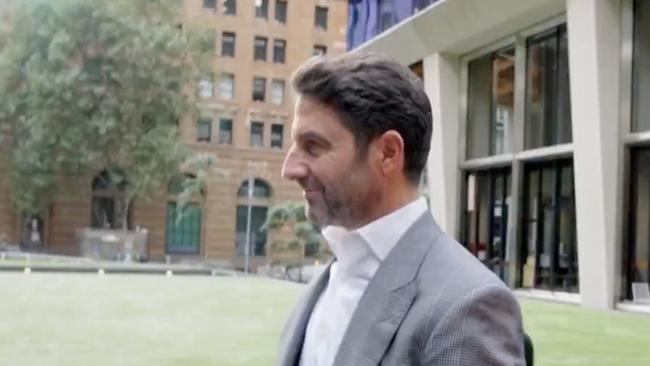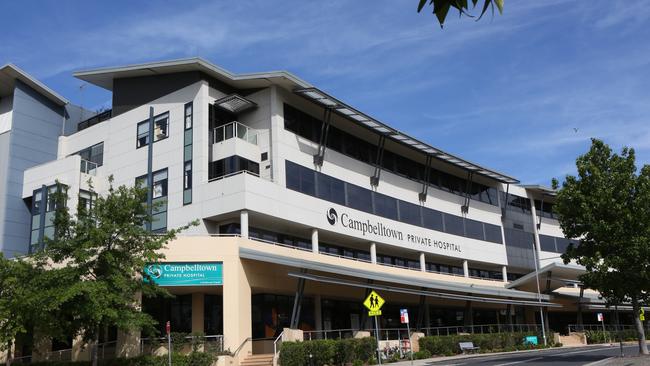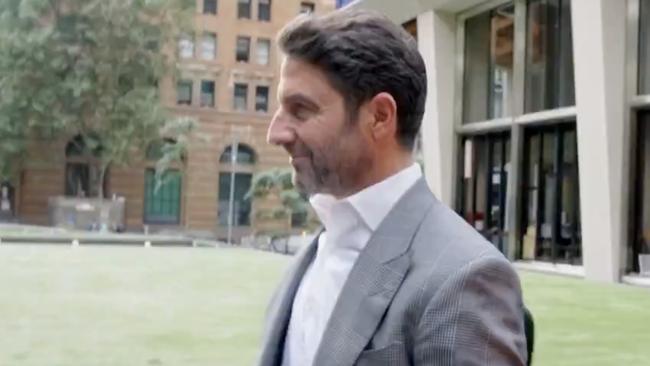Healthscope falls into the arms of receivers McGrathNicol as break up looms
The collapsed private hospital operator says that it will keep its facilities running, but its 37 strong empire faces the prospect of a break-up and shutdowns in future.

The future owner of hospital operator Healthscope will push the company’s landlords for a rent cut and its insurers for a better deal after Healthscope’s banks called in receivers McGrathNicol to sell the business.
The hospital company has been weighed down by heavy debts, onerous leases and the structural pressures which have ripped through the private healthcare industry, and it now faces the prospect of being broken up.
The receivership, flagged by DataRoom, was driven by offshore lenders, but the company was thrown a lifeline by Commonwealth Bank which provided an extra $100m that it may call on while it is being sold.
The sale came after its parent, the offshore giant Brookfield, walked away from its disastrous acquisition of the hospital operator and effectively handed back control to a lending syndicate that is owed about $1.4bn.
The operating business, which runs the hospitals, is not in receivership and the wards and theatres will remain open on a business-as-usual basis to minimise disruption for staff, doctors and patients.

“This process has got nothing to do with closures of hospitals or redundancies of staff,” Healthscope chief executive Tino La Spina said. “All 37 of our hospitals continue to operate as normal and today’s appointment of receivers, including the additional funding, ensures a stable path to a sale.”
Mr La Spina said the extra funding was not expected to be required as it already has $110m in cash, but provided additional support should the need arise.
Minister for Health and Ageing Mark Butler ruled out a bail out and said the decision to put the business into receivership was “not unexpected”. He expects an organised sale without interruption of services: “I expect to see an orderly sale process eventuate from this decision to any owner with no impact on patients and hard-working staff,” he said.
“I will hold the company and the receivers and administrators to the commitment given to me and to Australian patients and staff.”
Mr Butler said governments were determined to ensure an orderly sale and he had made it clear to Brookfield that it would not receive taxpayer money.
He denied that Healthscope’s demise was a pointer to systemic problems lurking in the private hospital industry. “I would not draw any sector wide extrapolations from what is happening in this company,” he underlined.
McGrathNicol plans to shift all hospitals to the new ownership structure, with no plans for redundancies. The firm will undertake an immediate review of the sale process so far and will pick up with interested parties in coming weeks. “We want to make it clear that the subsidiaries that own and operate Healthscope’s network of hospitals are not affected by our appointment to the shareholding companies,” McGrathNicol partner and appointed receiver, Keith Crawford, said.
The Healthscope CEO said the company was the most efficient operator in the market and there was value to be realised. He said that problems stemmed from its leverage, paying above market rents and the tough industry structure.
While the receivers flagged that they would work on a way forward for the company, Mr La Spina suggested that the hospital company’s landlords would follow lenders in taking a haircut.
The company’s ultimate future lies in the hands of both the landlords and the debt syndicate, which is now under the influence of foreign hedge funds and distressed debt experts that will seek to maximise their returns.
The landlords are David Di Pilla’s HMC Capital, via two funds it manages, and Canadian group Northwest Healthcare Properties REIT. They may face upheaval as Healthscope has flagged it will look to recut lease terms as new operators take on the properties.
Despite the assertion that it is business as usual at Healthscope, the sale and recapitalisation could mean large outdated hospitals face closure, with new operators likely to only chase the more profitable assets.
Mr La Spina argued that a restructure overseen by the receivers could fix its financial problems. It also faced the industry-wide issue of insufficient payments from health insurers.
“I strongly believe Healthscope is the most efficient operator of hospitals,” he said. Once it fixed its leverage and rents, and the chronic underfunding of hospitals was addressed, then it could “absolutely be profitable moving forward”.
Mr La Spina said that new operators would not want to come in and pay above market rents, and flagged the sale process would pressure landlords to accept lower income. “This will ensure that people will have to come to the table and be commercial. And obviously the secured lenders are taking a haircut. The landlords are going to need to take a haircut as well,” he said.
Who will buy Healthscope?
McGrathNicol partner Jason Ireland said that lenders were aligned in wanting to stabilise the business, and closing hospitals was not part of that objective. He said the process would be looking to get maximum value so that debt holders can get some of their money back.
Mr La Spina said there had been ten bids for all or part of the company and expects the appointment to spur more interest: “I expect as the process continues … there’ll be even more that come out of the woodwork,” he said.
“There’s definitely strong interest in the business, that process to get to binding offers will probably take eight to 10 weeks.”

Mr La Spina emphasised that bidders would want to ensure they had comfort around rents.
“They will, no doubt, as part of that process, be having communications with the landlords to ensure that they’re getting a reasonable commercial deal on the way through,” he said.
The receivership had been in the offing since early May when a forbearance period with lenders ended, and they had the choice of letting the MA Financial-run sales process run or calling in receivers to take a more active role in the sales process. Brookfield had flagged that it would no longer support the business on which its private equity funds sustained heavy losses.
Healthscope said it remained in talks with the NSW government on the future of the Northern Beaches Hospital, which it has tried to hand back.
Mr La Spina said there was interest in the company as a whole as bidders could see its strategic value, with a market leading position. But some existing players are unable to buy the whole company due to competition concerns. “There is going to be operators out there, as well, that frankly aren’t able to own the whole interest,” he said.




To join the conversation, please log in. Don't have an account? Register
Join the conversation, you are commenting as Logout